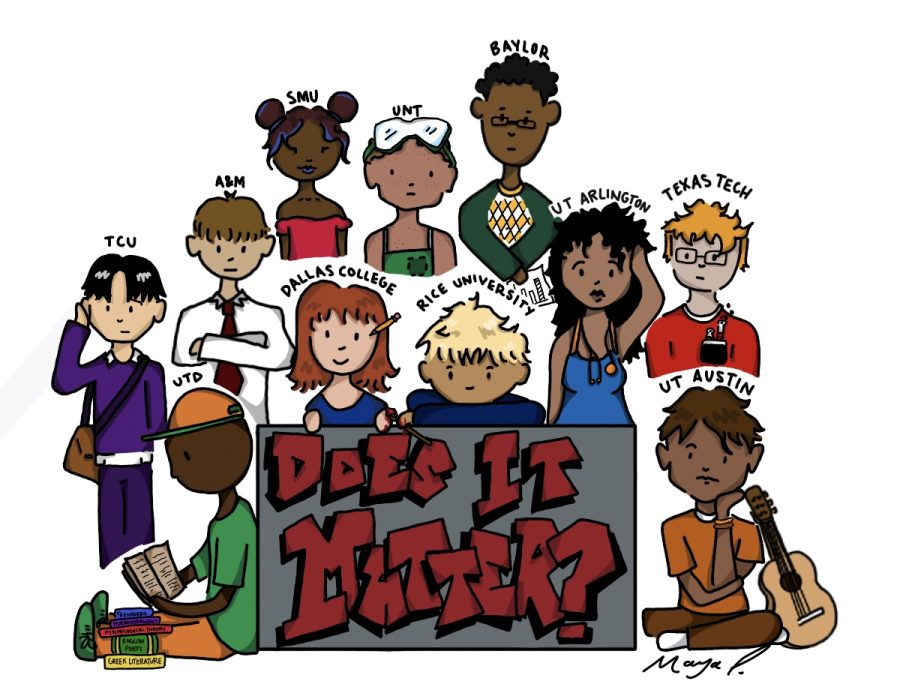Staff editorial: The path you choose is not for everyone
May 19, 2023
“Did you hear? He’s going to XXX school. Everyone goes there.”
“Yeah, she got into XXXX school, but she got admitted for an easy major.”
As the end of the school year and the May 1 acceptance deadline approaches, students are committing to colleges or making plans for the future. Subsequently, the halls are filled with sounds of students talking about their peers’ future plans and judging them.
Going to a college with a low acceptance rate? Getting into a college with a high acceptance rate but for a liberal arts program? Everyone has heard those are the easy routes. But is it? Even if it is, why are we judging those choosing to go down that route?
Everyone has a picture of what they want their future to look like. It can involve going to a prestigious college in their top-choice major or not going to college at all. Shaming others for not following the stereotypical vision of what someone’s future should look like perpetuates a culture that emphasizes a narrow definition of success and ignores the various paths that individuals can take.
Judging someone for the college they select because it has a low acceptance rate, is too close to home, is too far from home, is in an urban area, in a rural area or any other reasons is not seeing the full picture. A student may prefer that college for the same reason others don’t like the college, or they might have considered factors that others have not. Regardless of what they took into account, it should not matter; Students have various reasons for attending a certain college and those reasons make it their ideal college.
Even if someone gets into a college that the majority approves of, their chosen major is also up for judgment. People get judged for whether their major is “easy” or “hard,” or how “successful” they may be once they graduate.
Major stereotypes like the “will-be-unsuccessful” arts major and the computer science major earning six figures immediately after graduation are hard to escape. This way of thinking ignores the fact that everyone has different passions they want to pursue and every major has its own set of skills, knowledge and contributions to society.
Furthermore, some students may choose not to attend college because of financial restraints, family obligations or simply because they wish to pursue a career that doesn’t require, or benefit from, a college degree.
There are many reasons that a person chooses the path they take. Another student’s uninformed opinion on their post-high school plans should not be one of them.
By creating a hierarchy of colleges and majors, the students of Coppell High School discourage their peers from pursuing their real passions, which can result in students ending up in unwanted places or paths due to societal pressures.
While college and major shaming mainly affect seniors making their final decisions, it can also affect lower-classmen who are contemplating their future and are judged for the options they are considering.
As students arrive at what is supposed to be an exciting time in their lives, either furthering their education or entering the workforce, we should foster a positive environment that promotes excitement rather than judging and letting others’ judgments affect our decisions.
By ending college and degree shaming, CHS will have a community that is more inclusive, supportive and values every student’s individuality, strengths, abilities and personal goals, rather than their ability to get into a “good” college with an “ideal” major.Pal
Follow @CHSCampusNews on Twitter.










